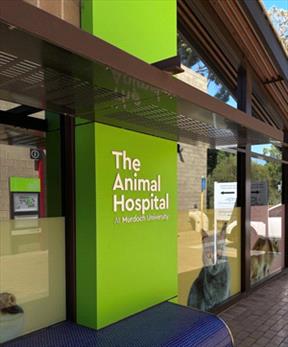Murdoch University

Murdoch University photo
Located in Perth on Australia's west coast, Murdoch University has one of the country's seven veterinary schools. Its hospital is the subject of a workplace safety investigation triggered by complaints from a union.
Australian authorities are investigating union claims that a hospital at one of the country's seven veterinary schools has unsafe working conditions that are causing staff and animals to suffer serious harm.
The allegations, leveled by the National Tertiary Education Union (NTEU) on behalf of an unspecified number of employees at Murdoch University, come at a time when veterinary professionals worldwide are stretched by a labor crunch driven by the Covid-19 pandemic. Murdoch University, based in Perth, has questioned the veracity of the union's claims.
WorkSafe, the workplace health and safety regulator for the state of Western Australia, confirmed to the VIN News Service that its investigation of The Animal Hospital at Murdoch University started May 6 following a referral by the union.
In its referral, the NTEU outlined what it describes as "extreme health and safety concerns" at the hospital, including staff contemplating self-harm due to "extreme" stress and staff getting into car accidents due to a lack of sleep.
The union claims that staff can't take breaks and are being forced to deal alone with dangerous animals. Animal patients, it added, are being left unsupervised on weekends.
Murdoch University said it would cooperate with WorkSafe's investigation.
"The NTEU made a number of statements with which we disagree and we will be inviting them to provide evidence or correct the record and apologize," a spokesperson for the university, Andrew Gaspar, said. "Notwithstanding the claims of the NTEU, there have been no substantiated examples of staff injuries from a lack of resources."
Gaspar said labor shortages are common in the veterinary profession because demand is increasing due to higher levels of pet ownership, and the supply of practitioners is falling due to high attrition rates. "We have dedicated staff doing a tremendous job in a challenging industry in which to work, and the difficult conditions have been exacerbated by Covid," Gaspar said.
Whether workplace conditions at the hospital are unsafe ultimately will be determined in the context of Western Australia's health and safety laws. WorkSafe investigations can result in outcomes ranging from exonerations to prosecutions, with prosecutions being the least common. More often, workplaces found to breach rules are issued improvement notices, which are written directions to an employer to fix something. Other remedies include prohibition notices, which prevent a harmful activity from continuing.
Investigations by the regulator happen frequently — the agency performed about 8,700 in 2020-21 — and other veterinary hospitals have been probed in the past, according to WorkSafe Commissioner Darren Kavanagh. "[Investigations] range from a basic workplace inspection that might take an hour, through to comprehensive investigations that take many months," Kavanagh said via email. "Each inspection/investigation is considered on its merits, and the concerns that are raised are examined based on the potential risks."
The probe at Murdoch University's animal hospital is estimated to take two to three weeks, "but this could change depending on the findings," Kavanagh said.
For its part, the NTEU contends that safety issues at the hospital are especially severe and predate the pandemic.
"We have requested the intervention of WorkSafe because the situation is beyond untenable," Catherine Moore, NTEU Western Australia division secretary, said in a press release. "Our members are at their wits' end and desperately need more staff on deck."
According to Murdoch University, as of May 6, the hospital employed 292 veterinary professionals, including 75 veterinarians and 162 veterinary nurses. The union's Moore said the hospital has been down "at least two-and-a-half full-time equivalent staff over the past few years," without specifying whether she was referring to overall staff numbers or on-shift numbers at particular times. She declined to comment further when contacted by VIN News.
In the press release, Moore said the union also is concerned about an apparent absence of "suitable hospital processes and procedures to deal with work overload" and a dedicated health and safety representative for the hospital.
Gaspar said the university has a "dedicated safety team" that investigates claims of unsafe practices and has invested in staff well-being at the animal hospital with measures such as providing an on-site counseling service and suppling cab vouchers for fatigued staff.
The university, he added, would investigate any claims that animals have died due to a lack of resourcing and that it would be seeking evidence of animal fatalities from the union. "We assure pet owners that our dedicated staff attend to their pets with the utmost care and dedication; always have and always will," Gaspar said.